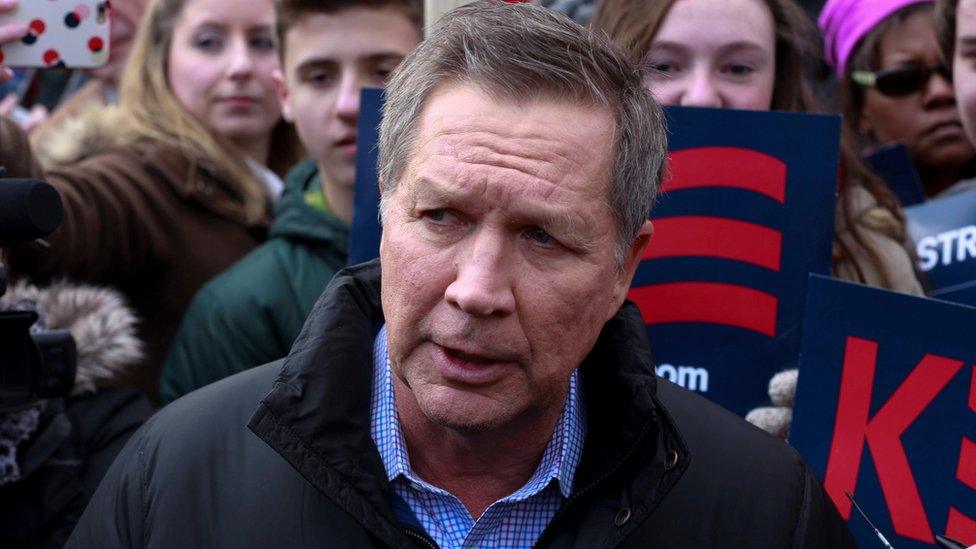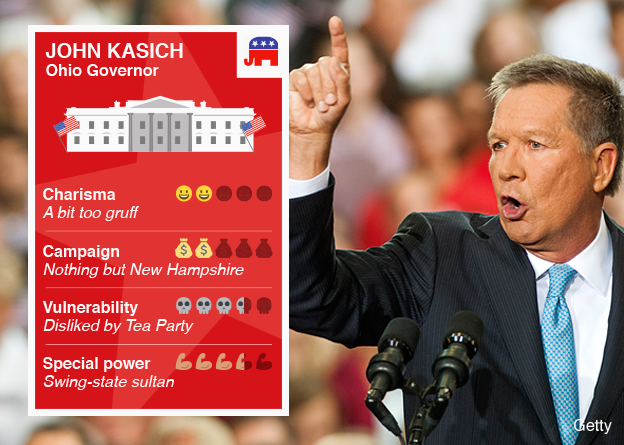US election 2016: Who is John Kasich?
- Published

John Kasich speaks to supporters in New Hampshire ahead of the primary
Governor John Kasich was the last holdout in the fight to keep Donald Trump from the Republican presidential nomination.
The Ohio governor ended his presidential bid on 5 May and was the last Republican candidate standing next to Trump. Kasich struggled throughout his campaign to win national recognition.
He was elected to the governor's office in 2011, after a lengthy congressional career and a stint in the private sector.
Kasich touted his experience in executive office and tried to distinguish himself as a relative moderate, calling his opponent's policies "irresponsible" and trying to distinguish himself as an alternative to Jeb Bush.
The second-term governor launched campaign with a speech in front of 2,000 people at Ohio State University in July 2015.
The 63-year-old told the rally in Columbus his work at state and national level was his main qualification.
"I have the experience and the testing, the testing which shapes you and prepares you for the most important job in the world," he said.


Analysis by Anthony Zurcher, North America reporter
Kasich entered the Republican race because he perceived the nominal front-runner, Jeb Bush, to be weaker than at first thought. The Ohio governor has turned out to be only a slightly less flawed version of the man he sought to supplant for the mainstream Republican vote, however.
Like Bush, he isn't trusted by grassroots Republican voters who dislike his perceived heresy on healthcare reform in his state. His sometimes-dour demeanour has hurt him during the high-profile debates, where he's struggled to get attention.

He has touted his Christian faith's influence on his policy making, and has pointed to balanced budgets during his time as governor and in Congress.
In one debate, Kasich justified his decision to expand Medicaid coverage under Obamacare by quoting the Bible, a move criticised by the conservative wing of his party.
Kasich also attacked Trump on several occasions, including his calls for mass deportation of undocumented immigrants and ban on Muslims entering the US.
He was also endorsed for the Republican candidacy by the New York Times.
But the attacks and the endorsement did not make a significant difference in Trump's national polls.
The day after the Indiana primaries and the end of Senator Ted Cruz's campaign, Kasich also bowed out, leaving Trump as the party's presumptive candidate for president.